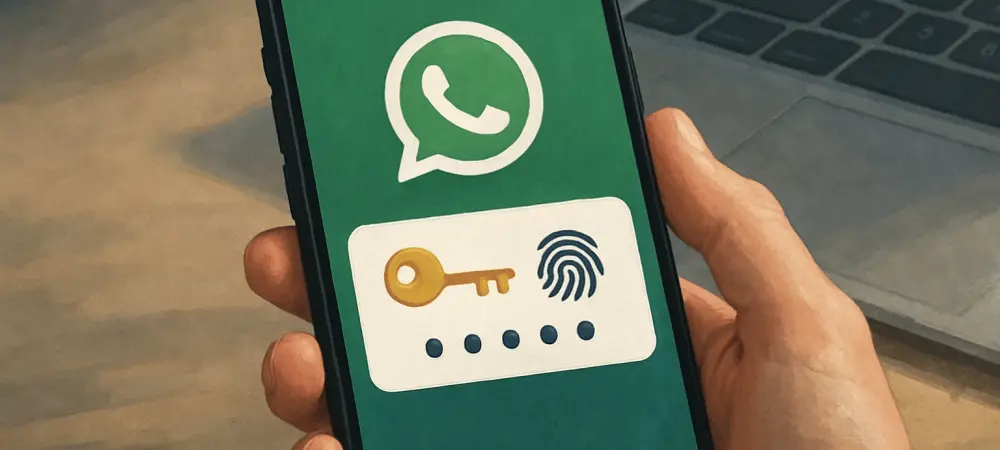I’m thrilled to sit down with Dominic Jainy, a seasoned IT professional whose expertise in cutting-edge technologies like artificial intelligence, machine learning, and blockchain offers a unique perspective on the evolving landscape of digital security. Today, we’re diving into WhatsApp’s latest update on end-to-end encrypted chat backups using passkeys—a feature that promises to simplify and strengthen how users protect their data. In our conversation, Dominic sheds light on the mechanics behind this innovation, its impact on user experience, and what it means for the future of secure communication.
Can you walk us through what passkeys are and how they’re being used to secure WhatsApp chat backups?
Passkeys are a modern authentication method that leverages biometric data—like your fingerprint or face—or a device screen lock to verify your identity. Unlike traditional passwords or those cumbersome 64-digit encryption keys, passkeys are stored securely in a password manager, making them both convenient and robust. With WhatsApp’s new update, they allow users to encrypt and restore chat backups without needing to memorize anything. It’s a seamless way to ensure that only you can access your data, even if it’s stored in the cloud.
What prompted WhatsApp to introduce passkeys as an option for securing backups?
The main driver was user frustration with the older methods. Passwords can be forgotten or stolen, and a 64-digit encryption key is just impractical for most people to manage. WhatsApp saw an opportunity to enhance both security and usability by adopting passkeys, which reduce the risk of human error while maintaining a high level of protection. It’s a response to real user pain points—making encryption accessible without sacrificing safety.
How does this passkey feature improve the overall user experience compared to traditional methods?
It’s a game-changer in terms of simplicity. Instead of typing out a password or handling a long key, you just use your fingerprint or face to unlock your backup. It cuts down on the hassle and minimizes the chance of getting locked out due to a forgotten credential. Plus, since passkeys are tied to your device or password manager, they work across multiple devices without extra steps, which wasn’t always the case with older encryption options.
Can you explain the process of setting up a passkey for WhatsApp backups on a smartphone?
It’s pretty straightforward. You open WhatsApp on your Android or iPhone, head to Settings, then navigate to Chats and select End-to-end encrypted backup. From there, you’ll see an option to turn on passkeys. Tap on it, and you’ll be prompted to create one using your device’s biometric authentication or screen lock. Just follow the on-screen instructions, and you’re set. It’s designed to be intuitive, so even non-tech-savvy users can do it without much trouble.
What should users know about the security of passkeys and how they’re stored on different devices?
Passkeys are stored in a secure password manager, often integrated with your device’s operating system, like Google Password Manager on Android or iCloud Keychain on iPhone. They’re protected by the same robust encryption that safeguards other sensitive data on your device. The key difference between platforms is how they’re managed—Android ties them closely to Google’s ecosystem, while iPhones use Apple’s infrastructure, which excludes WhatsApp backups from regular iCloud or iTunes backups for added isolation and security.
What happens if someone loses access to their passkey—can they recover their WhatsApp backup?
Unfortunately, if you lose access to your passkey, WhatsApp can’t help you recover it or restore your backup. That’s the trade-off for such a high level of security; it’s designed to ensure that only you have access. This is similar to losing a password or encryption key—without it, the data remains locked. It’s a stark reminder to keep your device secure and ensure your password manager is backed up or synced properly across devices.
How does this passkey feature integrate with WhatsApp’s existing end-to-end encryption framework?
Passkeys build on WhatsApp’s end-to-end encryption, which has been in place for chat backups since 2021. They act as an additional layer, securing the backup file itself in the cloud so that even if someone gains access to the storage, they can’t decrypt it without your passkey. Before this, there were concerns about backups being a weak link if passwords were compromised. Passkeys address that by tying access to something unique to you—your biometrics or device lock.
What can users expect in terms of the rollout timeline for this new feature?
WhatsApp is rolling out passkey support gradually over the coming weeks and months. Not everyone will see it right away—it depends on your region, device, and app version. This phased approach helps them manage server load and iron out any bugs based on early feedback. So, if you don’t see the option yet, just keep your app updated, and it should appear soon.
Are there any potential drawbacks or risks with using passkeys for WhatsApp backups that users should be aware of?
While passkeys are generally secure, they’re not foolproof. If your device is compromised—say, someone bypasses your screen lock or biometrics—your passkey could be at risk. Also, since they’re tied to your device or password manager, losing access to both could lock you out permanently. It’s rare, but users should be cautious about securing their devices and consider backup authentication methods if their manager allows it.
Looking ahead, what’s your forecast for the future of digital security features like passkeys in messaging apps?
I think passkeys are just the beginning. We’re moving toward a passwordless future where biometrics and device-based authentication become the norm, not just for messaging apps like WhatsApp but across all digital platforms. As threats evolve, I expect to see even tighter integration with hardware security features and AI-driven anomaly detection to flag unusual access attempts. The focus will be on balancing convenience with ironclad protection, and innovations like passkeys are paving the way for that shift.

